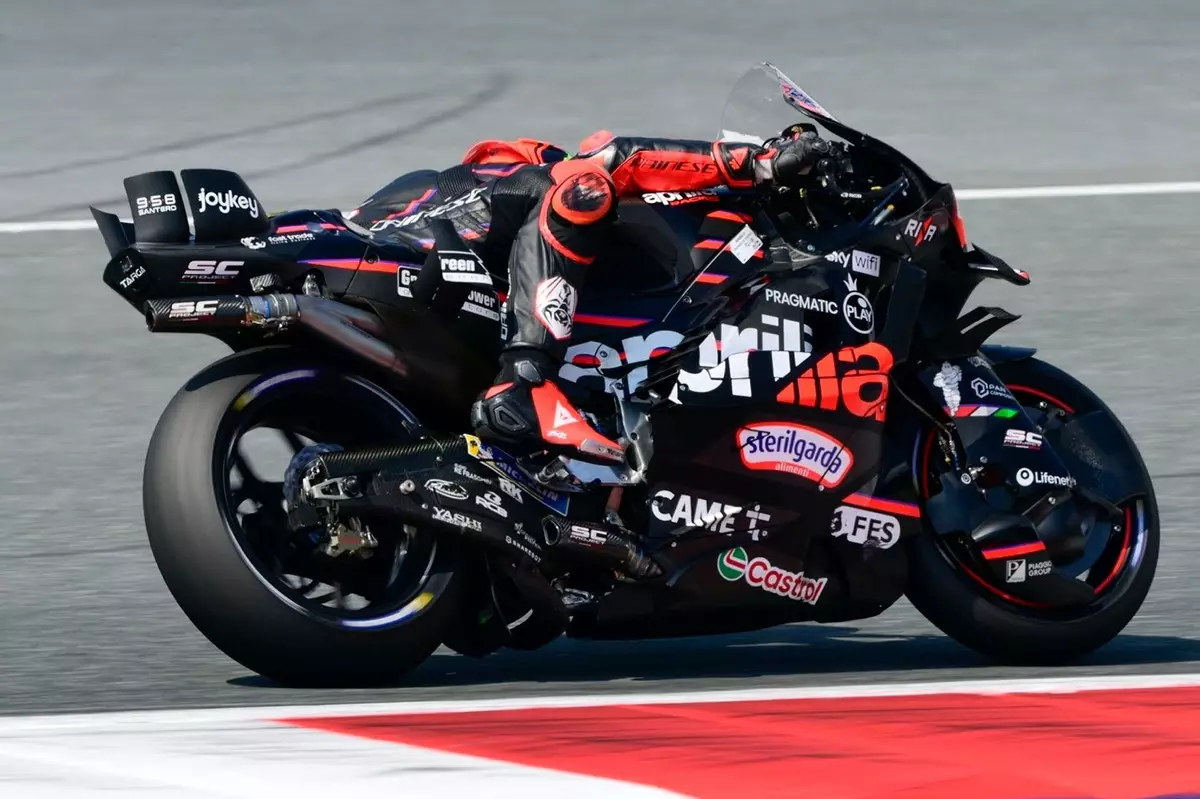In the high-stakes arena of MotoGP, setbacks are often catalysts for growth and fierce resurgence. Marco Bezzecchi’s recent performance at the Austrian Grand Prix exemplifies this principle. While he faced the pain of missing the podium in Saturday’s sprint — finishing fourth behind the formidable Marquez brothers and Pedro Acosta — he refuses to be disheartened. Instead, Bezzecchi demonstrates a relentless desire to improve, seeking to capitalize on opportunities that lie ahead. It’s a testament to his fierce competitive spirit, a trait that separates average riders from true contenders. His determination to “find something more” underscores a profound understanding: success in racing isn’t just about speed; it’s about continuous evolution, adaptation, and persistence.
What makes Bezzecchi’s approach particularly compelling is his acceptance of imperfections. After the sprint race, he acknowledged his shortcomings, especially his pace, while remaining optimistic about what the upcoming race might bring. Rather than dwelling on the missteps, he mentors himself with a growth mindset, aiming for improvements rather than just placating past failures. This attitude embodies the core of ultimate racing philosophy—embracing challenges as stepping stones rather than obstacles.
Turning Challenges into Opportunities: The Power of Team and Strategy
The journey from Saturday to Sunday reveals Bezzecchi’s appreciation for the importance of strategy and teamwork. His team at Aprilia, often underestimated in the complex world of MotoGP, showcased their resilience by delivering a significant upgrade between races. Their ability to transform setbacks into breakthroughs parallels Bezzecchi’s personal resilience. Their progress mirrors the broader truth that success is rarely the result of a single effort but a symphony of meticulous adjustments, intelligent planning, and cohesive teamwork.
Moreover, Bezzecchi’s warm-up performance—his fastest lap that broke the existing race lap record—reinforces a pivotal insight: in racing, psychology plays an instrumental role. The comfort he derived from knowing he set a benchmark during warm-up fuels his confidence. It symbolizes that, even if overnight improvements don’t always materialize, the opportunity for a smart, calculated push remains. His readiness to work through the night, tweaking his setup to chase that elusive edge, exemplifies a racer’s unwavering drive to succeed under pressure.
Climactic Race Strategies and Weather: The Great Equalizers
Race day at the Red Bull Ring isn’t just dictated by raw speed; it’s a chess match against unpredictable elements—most notably, the weather. The looming threat of rain adds an unpredictable layer to Bezzecchi’s ambitions. The variable conditions can act as both an equalizer and an advantage for those prepared to adapt swiftly. Historically, MotoGP has shown us how weather can flip the script overnight, turning favorites into underdogs and vice versa.
For Bezzecchi, this volatility highlights the importance of tactical flexibility. His warm-up lap suggests he’s in prime shape to exploit changing conditions, given his ability to post competitive and record-breaking times. It’s not just about riding fast; it’s about racing smart, understanding when to push, when to conserve, and how to maximize limited grip and visibility. Success on race day, especially amid inclement weather, will hinge on his capacity to remain calm, adaptable, and strategic—all qualities he has demonstrated during his steep learning curve.
Unleashing the Full Potential: A New Chapter for Bezzecchi
Bezzecchi’s journey from qualifying struggles to warm-up supremacy embodies the essence of high-performance growth—constant struggle, strategic recalibration, and unwavering focus. His acknowledgment that he is still “a bit slower in terms of pace” reveals humility and a clear mindset for progress rather than complacency. The opportunity to turn his speed into consistent race-winning momentum relies heavily on his ability to stay mentally resilient and physically prepared.
His recent progress at Austria, coupled with the strategic depth of his team, suggests he’s poised to challenge the established dominance of Ducati and KTM. But perhaps most telling is his mental philosophy—viewing each mistake as an opportunity to learn. If Bezzecchi harnesses this mindset, combined with his now proven ability to adapt and improve rapidly, the Austrian GP could mark a pivotal moment in his career trajectory.
In racing, as in life, the greatest champions are those who refuse to settle. Bezzecchi’s potential to seize this race day and propel himself into the limelight depends not just on riding skill, but on his capacity to harness adversity as fuel for greatness. The Austrian circuit is more than just a track; it’s a proving ground for a young rider’s resilience, ambition, and readiness to dominate.

